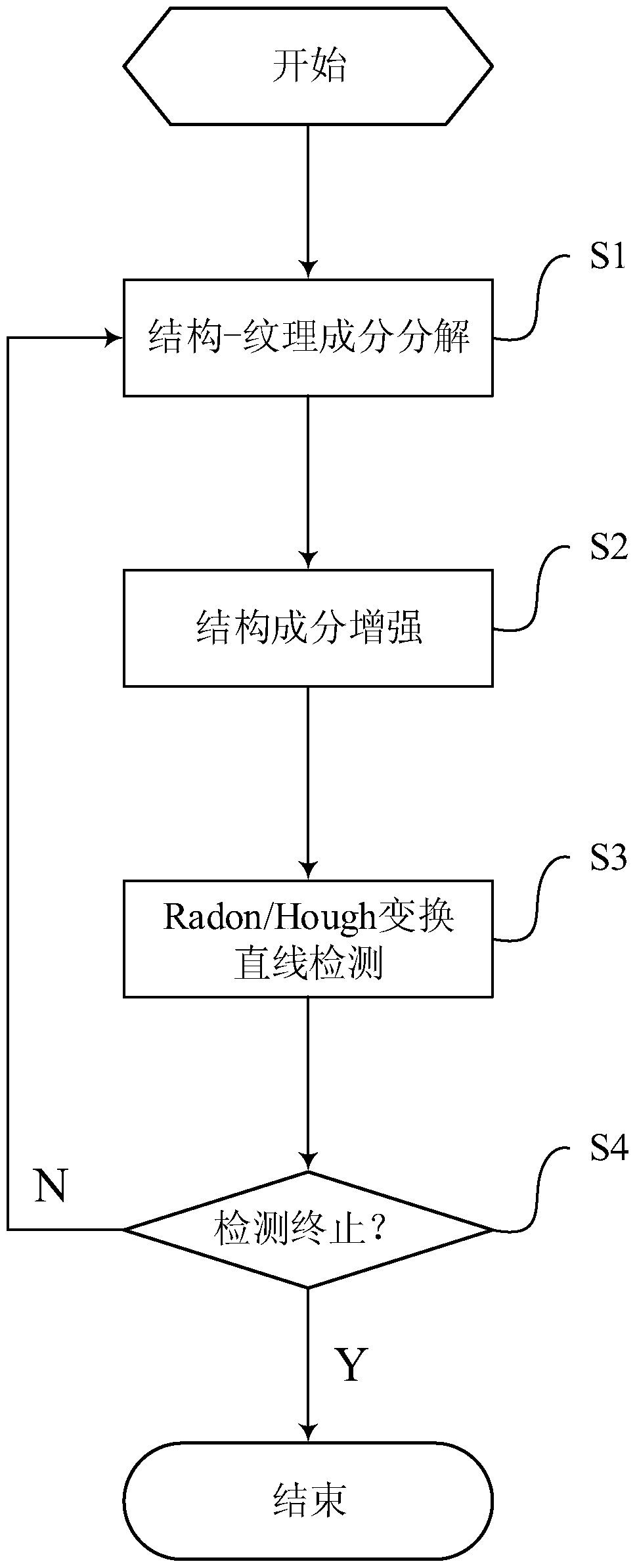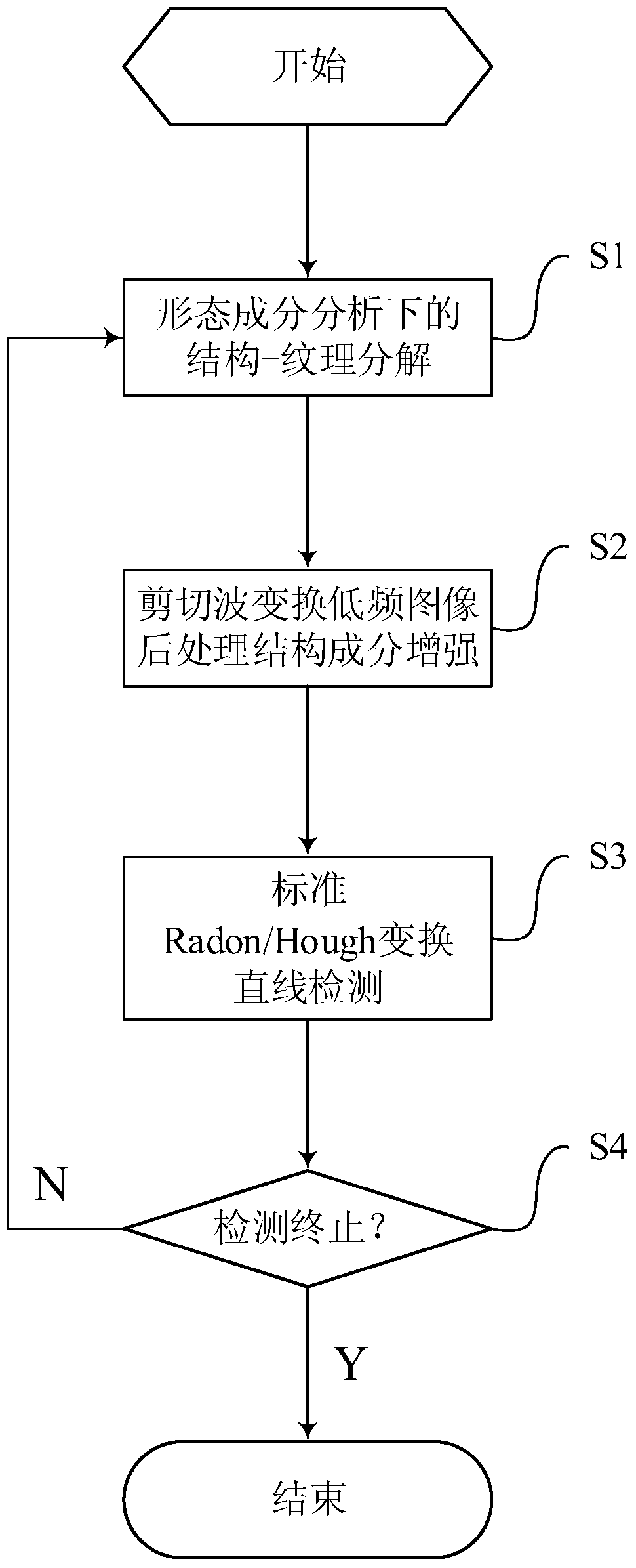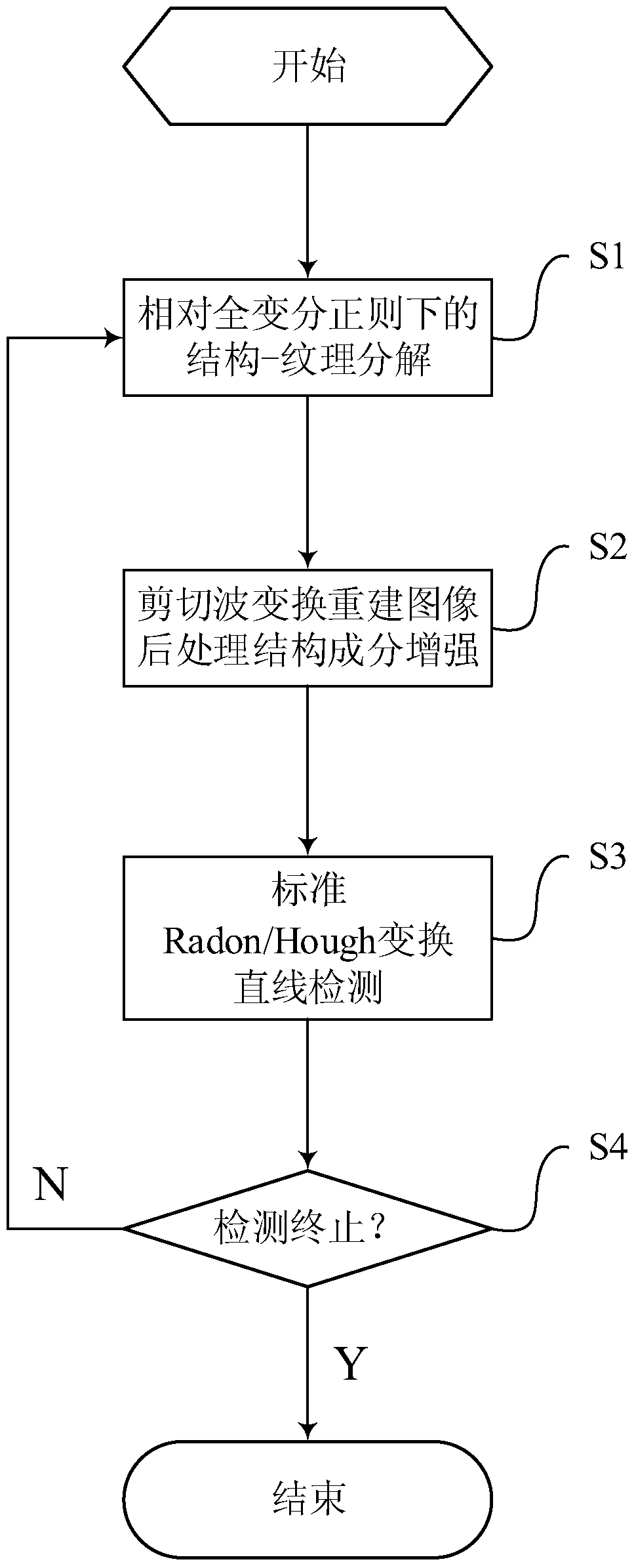A Method for Ship Wake Detection in Complicated Background SAR Images
A technology with complex background and detection method, which is applied in the field of detection of ship wakes in synthetic aperture radar images, can solve the problems of ship wake detection in SAR images, etc., and achieve the removal of complex textures, enhancement of ship wake areas, and robustness Effect
- Summary
- Abstract
- Description
- Claims
- Application Information
AI Technical Summary
Problems solved by technology
Method used
Image
Examples
Embodiment 1
[0054] The process flow of the complex background SAR image ship wake detection method disclosed in this embodiment is as follows: figure 2 shown, including:
[0055] Step S11: enhancing the contrast of the SAR image, and obtaining the structural components of the image through morphological component analysis technology.
[0056] First, the histogram equalization is performed on the SAR image, and the image contrast is enhanced, and then the enhanced image is subjected to morphological component analysis (Morphological Component Analysis, MCA) to separate the structural components and texture components of the image. The complex background SAR image X can be regarded as a linear combination of structural components S, texture components T and residual R mainly speckle noise, as follows:
[0057] X=S+T+R (1)
[0058] It can be seen that the unique S and T cannot be obtained from X without limitation. However, starting from the sparse representation theory of signals, the s...
Embodiment 2
[0081] Experiments show that, using the MCA technology in Example 1 to decompose the complex background SAR image structure-texture, there may be a large number of non-wake area edges in the obtained structural components, which cover the edges of the ship wake itself; Wavelet transform and acquisition of low-frequency components—equivalent to smoothing structural components—although it can remove more edges of non-wake areas, it also weakens the edges of ship wakes and increases the amount of calculation for subsequent gradient image binarization . Therefore, the method disclosed in this embodiment has been improved for these problems, and the new detection process is as follows: image 3 shown, including:
[0082] Step S21: Enhance the contrast of the SAR image, and obtain the structural components of the image through the relative full variation regularization technique.
[0083] First, histogram equalization is performed on the original SAR image to enhance image contras...
PUM
 Login to View More
Login to View More Abstract
Description
Claims
Application Information
 Login to View More
Login to View More - R&D
- Intellectual Property
- Life Sciences
- Materials
- Tech Scout
- Unparalleled Data Quality
- Higher Quality Content
- 60% Fewer Hallucinations
Browse by: Latest US Patents, China's latest patents, Technical Efficacy Thesaurus, Application Domain, Technology Topic, Popular Technical Reports.
© 2025 PatSnap. All rights reserved.Legal|Privacy policy|Modern Slavery Act Transparency Statement|Sitemap|About US| Contact US: help@patsnap.com



